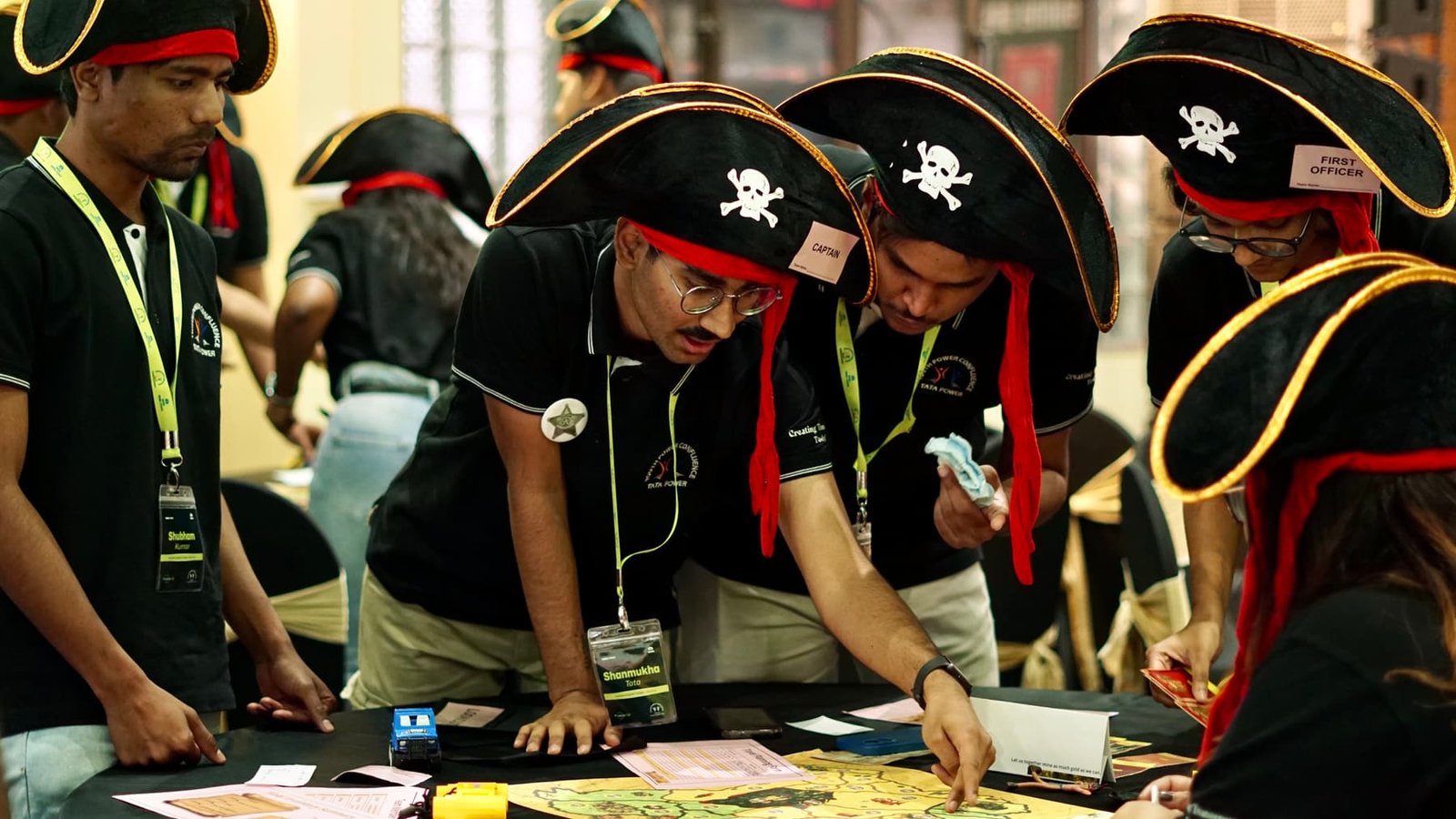Tata Power partnered with SimuRise to deliver onboarding training for 231 new Cadre Management Team members through a high-impact, simulation-based experience. The intervention focused on building action-orientation, strategic thinking, collaboration, and decision-making, all in a risk-free, game-based environment.
Introduction
Tata Power, one of India’s largest integrated power companies, is deeply invested in shaping the future of energy through innovation, sustainability, and leadership.
As part of its structured approach to leadership development, Tata Power introduced an onboarding training journey to help its new Cadre Management Teams—231 newly inducted managers—start with the right mindset and skills.
But rather than lecture them on business acumen or decision-making frameworks, they chose a different path. They chose experience.
The Challenge
Effective onboarding training is critical because when a new team enters the organization, the first few months shape their habits, thinking, and alignment with business goals. Tata Power didn’t want this cohort to just understand processes, they wanted them to:
- Take initiative instead of waiting for instructions
- Collaborate across functions and seek support
- Make informed, strategic decisions
- Manage time and resources under pressure
- Think beyond tasks and understand business impact
They needed a powerful, time-efficient way to build these behaviors from Day 1.
The Solution
SimuRise introduced “The Quest for King Solomon’s Mines,” a 3-hour immersive business simulation tailored for early-career professionals.
This wasn’t training. It was live action.
Participants, divided into teams, faced a series of real-world-like challenges where they had to:
- Navigate uncertainty
- Make critical decisions using limited resources
- Communicate under time pressure
- Balance risk-taking with accountability
All the while, they were being observed—not for performance, but for behavior.
Key Outcomes
By the end of the simulation, a visible shift had taken place.
The 231 Cadre Managers left the room not just with insights, but new ways of working.
Here’s what changed:
- Action-Oriented Mindset: Teams took ownership of their decisions instead of waiting for direction.
- Informed Decision-Making: Participants evaluated risk vs reward more clearly.
- Help-Seeking & Collaboration: Even the high performers began to trust, ask, and share.
- Resource Maximization: Teams learned to do more with less, and think creatively.
- Strategic Clarity: Leaders began connecting choices to long-term impact.
Most importantly, these weren’t taught as concepts—they were experienced.
The Learning Takeaway
Experiential learning is powerful because it mirrors real consequences, without real risk.
Participants reflected on their behavior, saw what worked (and what didn’t), and made rapid mindset adjustments. They connected abstract leadership concepts to real-world decisions they made inside the simulation.
In just 3 hours, they learned what most managers take years to figure out.
Conclusion
The 231 Cadre Managers at Tata Power walked away with something far more valuable than content—they walked away with conviction.
The conviction that collaboration is more effective than individual brilliance. That action drives clarity. That business growth starts with leadership behavior.
Tata Power’s investment in experiential learning has already set the tone for how these future leaders will show up for themselves, for their teams, and for the company’s next phase of growth.

